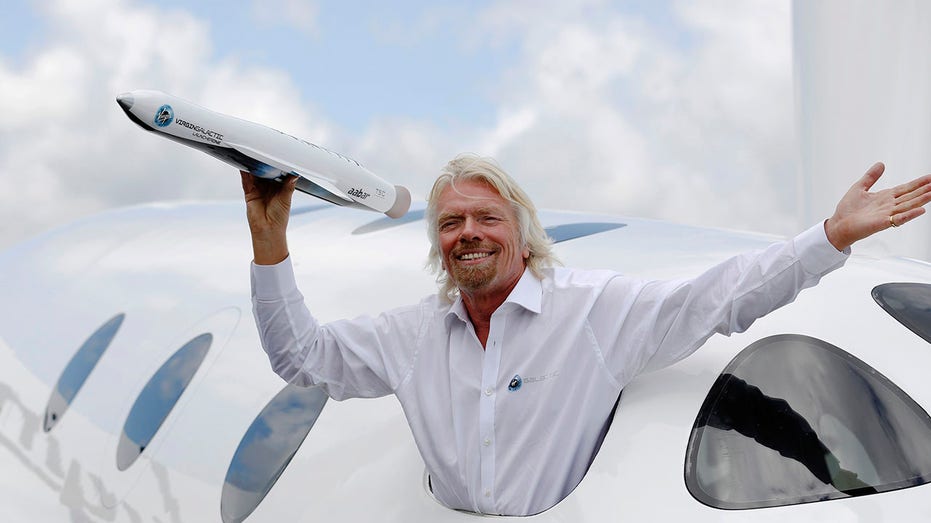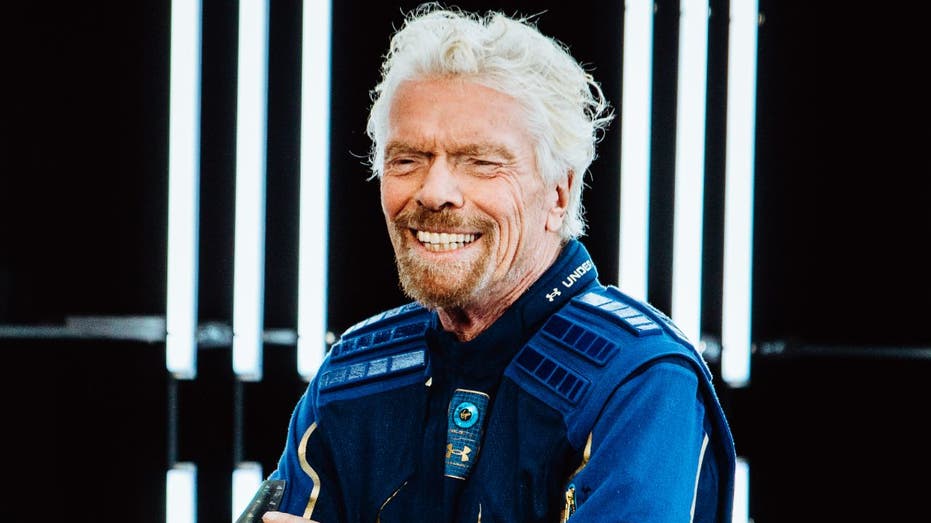Virgin Galactic set for stock-market liftoff
Richard Branson’s Virgin Galactic is ready for liftoff on the New York Stock Exchange on Monday.
The space-tourism company is set to go public through a direct listing after a merger with the venture capitalist Chamath Palihapitiya’s Social Capital Hedosophia was approved on Wednesday, paving the way for the process.
GET FOX BUSINESS ON THE GO BY CLICKING HERE
Ahead of the direct listing, investors aren’t really sure what Virgin Galactic is worth.
“Honestly, this is sticking your finger in the wind,” Tusk Holdings CEO Bradley Tusk told FOX Business, adding that he has no idea how Virgin Galactic rival Space X is a $31 billion company.
He says Virgin Galactic will either be “one of the most interesting and important companies of the next 25 or 50 years,” or that the company may never turn a profit, in which case whatever you pay now will be “wildly overpriced.”

Entrepreneur Richard Branson's Space Galactic announced Tuesday it will be merging with Social Capital Hedosophia. (Reuters)
A wave of money-losing tech companies have gone public this year and have seen their valuations crumble after hitting the open market.
The ride-hailing companies Uber and Lyft, which were among the most highly anticipated IPOs of the year, have seen their values plunge by 22 percent and 49 percent, respectively, since their stock-market debuts.
In addition, the software company Slack and the home-exercise company Peloton have seen their share prices lose 47 percent and 18 percent, respectively.
Then there’s WeWork, which was valued at $47 billion in January and was bailed out earlier this week when the Japanese tech giant SoftBank took an 80 percent stake at a valuation of about $8 billion.
“The notion of personal spaceflight is both so unique and unconventional that if there is a, call it a tech stock, that could still benefit from just pure excitement around something, this is one that possibly could,” Tusk said.
Virgin Galactic plans to send its first customers to space in early 2020. About 600 customers have reserved trips, which cost about $250,000 for a 2.5-hour flight.

Richard Branson wears a Virgin Galactic spacesuit. (Credit: Virgin Galactic)
There are several differences between a direct listing and a traditional initial public offering.
By going public through a direct listing, Virgin’s shares don’t have a set price or supply and the company avoids having to pay potentially hundreds of millions of dollars in fees.
For investors, it means there’s no lock-up period preventing the sale of shares. It also means the likelihood of higher volatility, at least in the near term, amid the process of price discovery.
Virgin Galactic will trade on the New York Stock Exchange under the ticker SPCE.
CLICK HERE TO READ MORE ON FOX BUSINESS
“There is something about this that captured the public's imagination, and it is different than everything else,” Tusk concluded. “So even if it's overvalued, it's definitely cool.”
